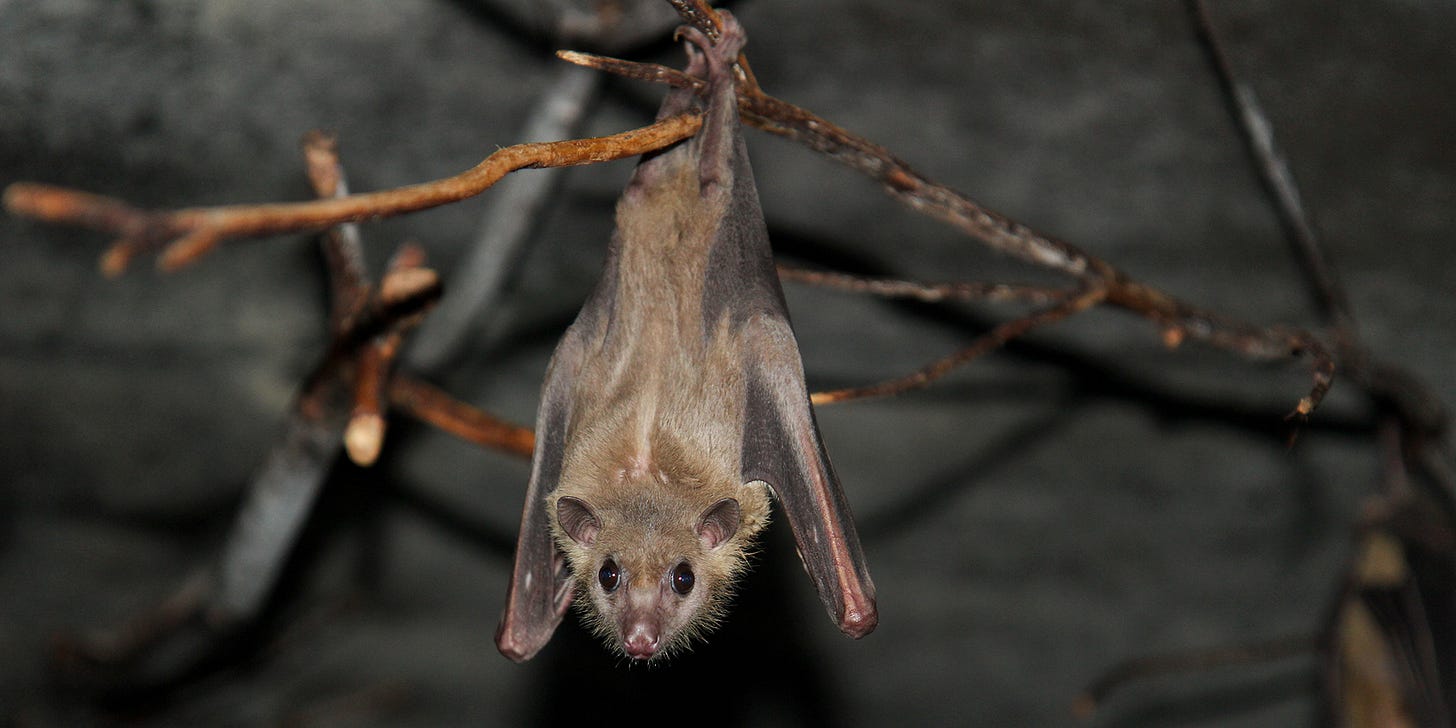Bats of a Feather: Unraveling the Social Minds of Egyptian Fruit Bats
New Insights into Bat Intelligence and Why It Matters for Wildlife Conservation
Can Bats Really Recognize You?
Imagine walking into a room full of people you know—friends, family, maybe even some acquaintances. You easily recognize each face, right? Now, imagine if a bat could do the same. It might sound surprising, but new research shows that Egyptian fruit bats have the ability to remember and recognize individual humans. They can even distinguish between different people based on their unique experiences with them!
In a fascinating study conducted by researchers from Tel Aviv University, scientists discovered that these bats could form specific patterns in their brains to identify individual human experimenters. Using advanced wireless technology, researchers tracked the bats' brain activity without disrupting their natural behavior. The results were eye-opening: the bats' brains, especially the hippocampus (the area linked to memory and navigation), reacted differently depending on which human was nearby. This means these little creatures aren't just flying around aimlessly—they're paying attention and remembering who’s who.

Why Should We Care?
This discovery isn't just a fun fact to share at parties. It has serious implications for how we treat animals in conservation efforts. If bats can recognize and remember us, it means they have more complex minds than we often give them credit for. This realization pushes us to rethink how we approach conservation—moving away from strategies that harm animals and towards more compassionate, humane methods.
What Is Compassionate Conservation?
Compassionate conservation is a game-changer. Instead of focusing only on saving species or ecosystems, this approach puts individual animals first. It’s about treating wild animals with respect, recognizing their intelligence and emotional lives, and finding ways to coexist peacefully. This means no more harmful practices like culling (killing animals to control populations), which can disrupt animal social structures and cause unnecessary suffering.
The study on Egyptian fruit bats perfectly illustrates why compassionate conservation is so important. By acknowledging that these bats are smart enough to recognize us, we’re reminded that animals have rich social lives we should respect. This understanding encourages us to develop conservation strategies that are not only effective but also ethically sound.
A New Way Forward
The insights from this research reach far beyond bats. They challenge us to reconsider traditional conservation methods that often prioritize the big picture—species survival—over the welfare of individual animals. Compassionate conservation offers a different path, one where we protect animals without causing them harm. It’s a vision of the future where humans and wildlife can live together peacefully, respecting each other's place on this planet.
Let’s Make a Change
This study is a call to action. It shows us that animals like Egyptian fruit bats have incredible capabilities that we’re just beginning to understand. As we learn more about the minds and emotions of animals, it’s clear that compassionate conservation is the way forward. By embracing this approach, we can create a world where all living beings thrive together.
It’s time to expand our circle of compassion and make choices that ensure a brighter, more harmonious future for both humans and wildlife.
For more information about Compassionate Conservation visit: What is Compassionate Conservation?
Ed Boks is a former Executive Director of the New York City, Los Angeles, and Maricopa County Animal Care & Control Departments. He is available for consultations. His work has been published in the LA Times, New York Times, Newsweek, Real Clear Policy, Sentient Media, and now on Animal Politics with Ed Boks.





Wonderful article! Thank you so much. 💚
Excellent article, Ed. I am not at all surprised. I know that the birds and squirrels that I regularly feed seeds and nuts recognize me, as well as the skunk who I befriended lately. It might apply to many non-human animals.